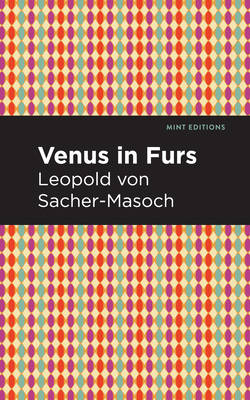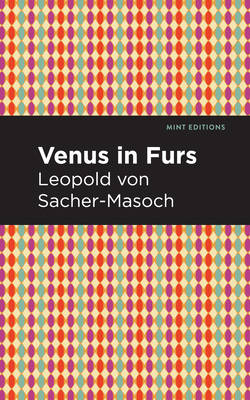
- Afhalen na 1 uur in een winkel met voorraad
- Gratis thuislevering in België vanaf € 30
- Ruim aanbod met 7 miljoen producten
- Afhalen na 1 uur in een winkel met voorraad
- Gratis thuislevering in België vanaf € 30
- Ruim aanbod met 7 miljoen producten
Omschrijving
Venus in Furs (1870) is a novella by Austrian writer Leopold von Sacher-Masoch. Intended as an installment in his Legacy of Cain cycle, Venus in Furs has far surpassed the author's other works in cementing his reputation. The work, which inspired Kraft-Ebing to define "masochism," is notable for its exploration of female dominance and male sexual submission.
The frame narrative begins with an unnamed man who develops a strong sexual desire after having a vivid dream. Disturbed, he tells a friend about the vision, in which he spoke to the goddess Venus while she was wearing luxuriant furs. In the memoir, which appears to have written by his friend, a man named Severin von Kusiemski describes his love affair with Wanda von Dunajew. Moved by a strong desire, Severin asks to be made Dunajew's slave, and though she denies him at first, she soon grows to take advantage of her power of the man. As she grows progressively more violent in her treatment of Severin, she satisfies his desires while simultaneously learning more about her own. Severin, who describes himself as a suprasensualist travels with Dunajew to Florence, where he invents an identity as a Russian servant and acquiesces to a life of degradation and servitude. When Dunajew meets a domineering and attractive man, however, she begins to question her role as Severin's master, desiring a submissive relationship of her own. Venus in Furs is a semi-autobiographical work describing Sacher-Masoch's details through a thin veil of fictional devices, and remains influential for charting new territories in the representation of alternative sexualities.
This edition of Leopold von Sacher-Masoch's Venus in Furs is a classic of Austrian literature reimagined for modern readers.
Since our inception in 2020, Mint Editions has kept sustainability and innovation at the forefront of our mission. Each and every Mint Edition title gets a fresh, professionally typeset manuscript and a dazzling new cover, all while maintaining the integrity of the original book.
With thousands of titles in our collection, we aim to spotlight diverse public domain works to help them find modern audiences. Mint Editions celebrates a breadth of literary works, curated from both canonical and overlooked classics from writers around the globe.
Specificaties
Betrokkenen
- Auteur(s):
- Uitgeverij:
Inhoud
- Aantal bladzijden:
- 110
- Taal:
- Engels
- Reeks:
Eigenschappen
- Productcode (EAN):
- 9781513271712
- Verschijningsdatum:
- 23/02/2021
- Uitvoering:
- Paperback
- Formaat:
- Trade paperback (VS)
- Afmetingen:
- 127 mm x 203 mm
- Gewicht:
- 127 g

Alleen bij Standaard Boekhandel
Beoordelingen
We publiceren alleen reviews die voldoen aan de voorwaarden voor reviews. Bekijk onze voorwaarden voor reviews.











